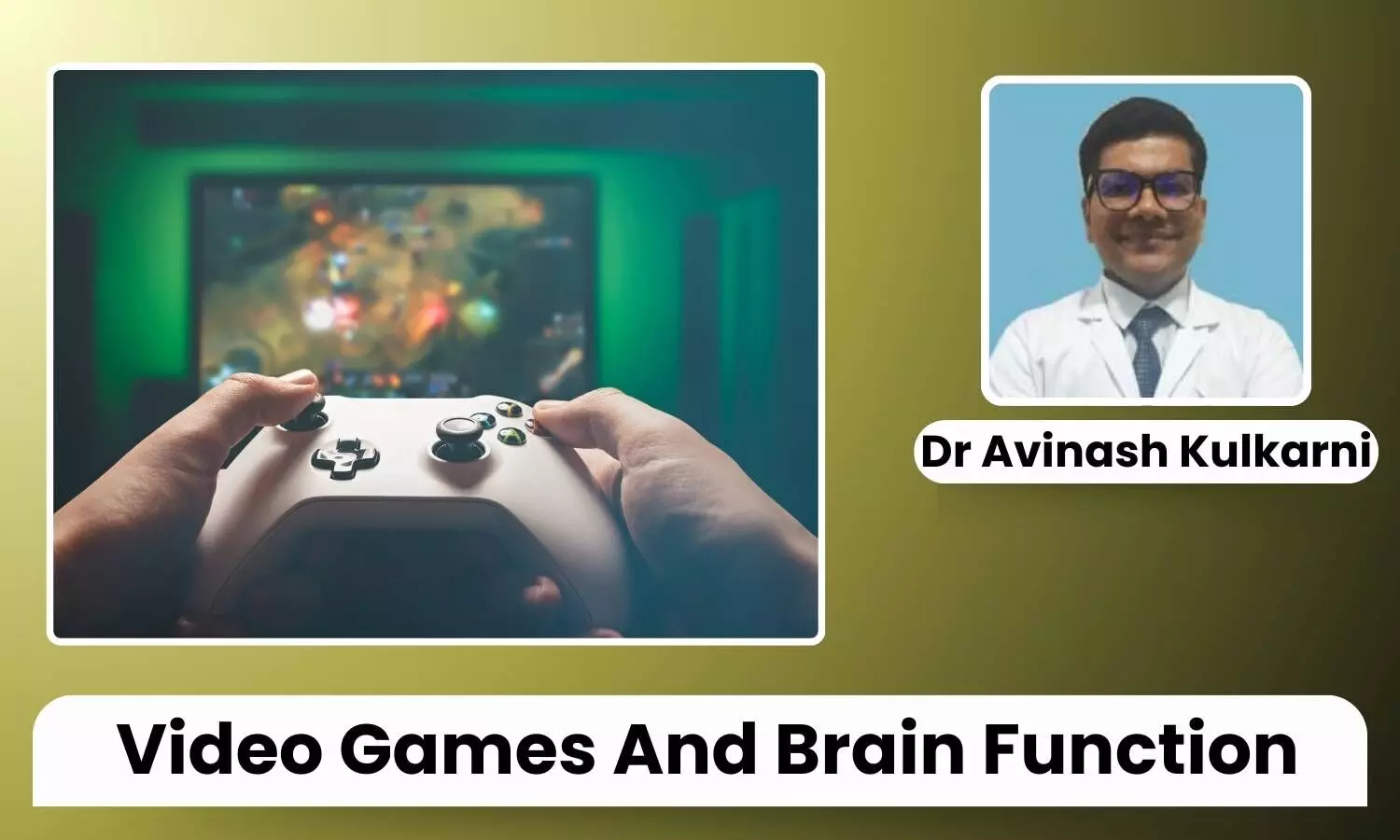Can Playing Video Games Improve Brain Function? - Dr Avinash Kulkarni

Video games, once perceived solely as a form of entertainment, have garnered growing attention from neuroscientists for their potential to enhance cognitive abilities.
While excessive gaming can have negative effects, research shows that playing video games in moderation can positively impact various aspects of brain function. This article explores the cognitive benefits of gaming, drawing insights from neurological studies.
Enhanced Problem-Solving Skills
Many video games, particularly strategy and role-playing games, require players to think critically, plan strategically, and make decisions under pressure.
These challenges engage the brain’s prefrontal cortex, which governs problem-solving, reasoning, and decision-making. Studies suggest that gamers often develop enhanced analytical thinking and are better equipped to tackle complex real-world problems.
Improved Hand-Eye Coordination
Action games, such as first-person shooters, demand precision, quick reflexes, and accurate motor responses. These activities activate the sensorimotor regions of the brain, strengthening the connection between visual input and motor output.
Neurologists often point to gaming as a potential training tool for surgeons and pilots, where fine motor skills and spatial awareness are critical.
Enhanced Memory and Spatial Navigation
Gaming frequently involves remembering intricate maps, recalling strategies, or tracking multiple objectives simultaneously. These activities engage the hippocampus, the brain region responsible for memory and spatial navigation.
For instance, open-world games that involve exploration can boost spatial memory and orientation, skills that are transferable to real-world navigation tasks.
Increased Multitasking Ability
Certain video games require players to manage multiple tasks simultaneously, such as monitoring health bars, coordinating team efforts, and responding to in-game challenges.
Such experiences strengthen the brain’s ability to process and prioritize information, enhancing multitasking skills. This capability can extend to everyday activities, such as managing work and personal responsibilities more efficiently.
Attention and Focus
Fast-paced video games require sustained attention and quick decision-making, which can improve a player's ability to concentrate on tasks over extended periods.
Research has shown that gaming can enhance selective attention, allowing players to focus on relevant stimuli while ignoring distractions. These skills are especially beneficial in professions requiring acute focus, such as air traffic control or emergency response.
Emotional Regulation and Stress Reduction
Some games are designed to promote relaxation and stress relief. Puzzle games, simulation games, and casual mobile games have been found to reduce stress and improve mood.
Additionally, gaming can serve as an emotional outlet, helping players develop resilience by navigating challenging scenarios in a virtual environment.
Social and Cognitive Benefits of Multiplayer Games
Online multiplayer games foster collaboration and communication, essential for teamwork and social bonding. Neurologists emphasize that cooperative gaming experiences can enhance social cognition, empathy, and conflict resolution skills.
Engaging in multiplayer games also stimulates the release of dopamine, contributing to feelings of satisfaction and motivation.
Neuroplasticity and Lifelong Benefits
Video games stimulate neuroplasticity—the brain’s ability to reorganize itself by forming new neural connections. This is particularly relevant for older adults, as gaming can slow cognitive decline and improve mental agility.
Puzzle and strategy games, for instance, challenge memory and reasoning skills, promoting mental sharpness and delaying the onset of dementia-related symptoms.
Role of Gaming in Rehabilitation
Neurologists increasingly recognize the potential of video games in rehabilitation therapies. For patients recovering from strokes or brain injuries, gaming can aid in rebuilding motor skills and cognitive function. Customized games designed for rehabilitation can improve attention, coordination, and memory, accelerating recovery.
Addressing the Risks
While the cognitive benefits of gaming are evident, it is essential to acknowledge the risks of excessive gaming. Prolonged gaming sessions can lead to issues such as digital eye strain, reduced physical activity, and addictive behaviours.
Neurologists recommend moderation and balancing gaming with other physical and social activities to maximize benefits while minimizing harm.
Practical Tips for Healthy Gaming
To harness the cognitive benefits of gaming, consider the following tips:
- Choose Brain-Engaging Games: Opt for games that challenge memory, problem-solving, or coordination, such as puzzles, strategy games, or action-adventure titles.
- Set Time Limits: Limit gaming to 1–2 hours per day to prevent overexposure and maintain a healthy balance.
- Incorporate Breaks: Take regular breaks during gaming sessions to reduce eye strain and improve focus.
- Engage in Multiplayer Games: Social games can provide cognitive and emotional benefits by fostering communication and teamwork.
- Diversify Activities: Complement gaming with physical exercise, hobbies, and social interactions to ensure a well-rounded lifestyle.
Conclusion
Far from being merely a source of entertainment, video games offer numerous cognitive benefits, from enhancing problem-solving skills and memory to improving hand-eye coordination and attention.
When played responsibly, gaming can be a valuable tool for brain training and even rehabilitation. Neurologists encourage a balanced approach to gaming, emphasizing moderation and thoughtful game selection to unlock its full potential.
As research continues to evolve, video games may play an increasingly significant role in fostering brain health and cognitive development across all age groups.
Disclaimer: The views expressed in this article are of the author and not of Health Dialogues. The Editorial/Content team of Health Dialogues has not contributed to the writing/editing/packaging of this article.


